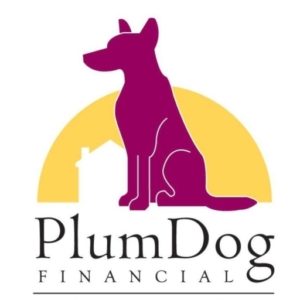WHY THE NAME PLUMDOG FINANCIAL?
We wanted different, memorable, and pertinent. The word plum means choice, desirable and/or special; and dogs are alert, friendly, and loyal. It all fits! Now you’ll always remember our name!
WHAT IS A MORTGAGE BROKER AND WHY SHOULD I WORK WITH ONE?
A mortgage broker works with several lenders with whom they have an established relationship. Sometimes different lenders have different guidelines, so while one loan my not get approved by one lender, it very well may get approved by another. The broker can query different lenders when working with a borrower in a unique situation. Mortgage brokers also shop interest rates for you, allowing you to rest assured that you have the best rate available. Mortgage brokers are highly regulated by the CFPB. Because mortgage brokers usually operate in a smaller capacity than a bank, often times the broker can be more competitive. Lastly, mortgage brokers only do mortgages, so they are highly trained and knowledgeable.
WHEN IS THE BEST TIME TO BUY A HOUSE?
The best time to buy a house is when you need one! Like trying to time the stock market, home costs and interest rates are difficult to project. Housing is an essential need, be it rent or ownership. Financial Planners will tell you that a key ingredient to wealth creation is home ownership.
HOW DO I KNOW HOW MUCH HOUSE I CAN AFFORD?
WHAT DOES MY MORTGAGE PAYMENT INCLUDE?
For most homeowners, the monthly mortgage payments include three separate parts:
- Principal: Repayment on the amount borrowed
- Interest: Payment to the lender for the amount borrowed
- Taxes & Insurance: Monthly payments are normally made into a special escrow account for items like hazard insurance and property taxes. This feature is sometimes optional, in which case the fees will be paid by you directly to the County Tax Assessor and property insurance company.
HOW MUCH CASH WILL I NEED TO PURCHASE A HOME?
The amount of cash that is necessary depends on a number of items. Generally speaking, though, you will need to supply:
- Earnest Money: The deposit that is given when you make an offer on the house. This is held in escrow usually by the buyer’s attorney and is applied to the down payment.
- Down Payment: A percentage of the cost of the home that is due at closing
- Closing Costs: Costs associated with processing paperwork to purchase or refinance a house. Some closing costs are incurred even in a cash sale, such as attorney fees, title insurance and recording fees. As a buyer, you can choose your attorney and homeowner’s insurance provider, so you can shop for those that will fit your budget.
HOW DO I KNOW WHICH TYPE OF MORTGAGE IS BEST FOR ME?
There is no simple formula to determine the type of mortgage that is best for you. This choice depends on a number of factors, including your current financial picture and how long you intend to keep your house. PlumDog Financial can help you evaluate your choices and help you make the most appropriate decision.
WHAT IS THE DIFFERENCE BETWEEN A FIXED-RATE LOAN AND AN ADJUSTABLE-RATE LOAN?
With a fixed-rate mortgage, the interest rate stays the same during the life of the loan. With an adjustable-rate mortgage (ARM), the interest changes periodically, typically in relation to an index. While the monthly payments that you make with a fixed-rate mortgage are relatively stable, payments on an ARM loan will likely change. There are advantages and disadvantages to each type of mortgage, and the best way to select a loan product is by talking to us.
HOW IS AN INDEX AND MARGIN USED IN AN ARM?
An index is an economic indicator that lenders use to set the interest rate for an ARM. Generally the interest rate that you pay is a combination of the index rate and a pre-specified margin. Three commonly used indices are the One-Year Treasury Bill, the Secured Overnight Financing Rate (SOFR), and the London InterBank Offering Rate (LIBOR).
WHAT IS A HOME IMPROVEMENT LOAN?
This is a common term used to refer to a situation where homeowner’s borrow funds to use specifically for home updates or repairs. It can be tailored in several ways. The option that PlumDog offers is called a cash-out refinance. This transaction pays off any current mortgage on your home and uses the equity to take out additional funds to use towards home improvements.
HOW DO I PURCHASE AND QUALIFY FOR A VACATION HOME?
A vacation home is typically considered an investment property or a second home. These mortgages generally have higher interest rates, require more of a down payment, and might have more stringent credit score requirements.


